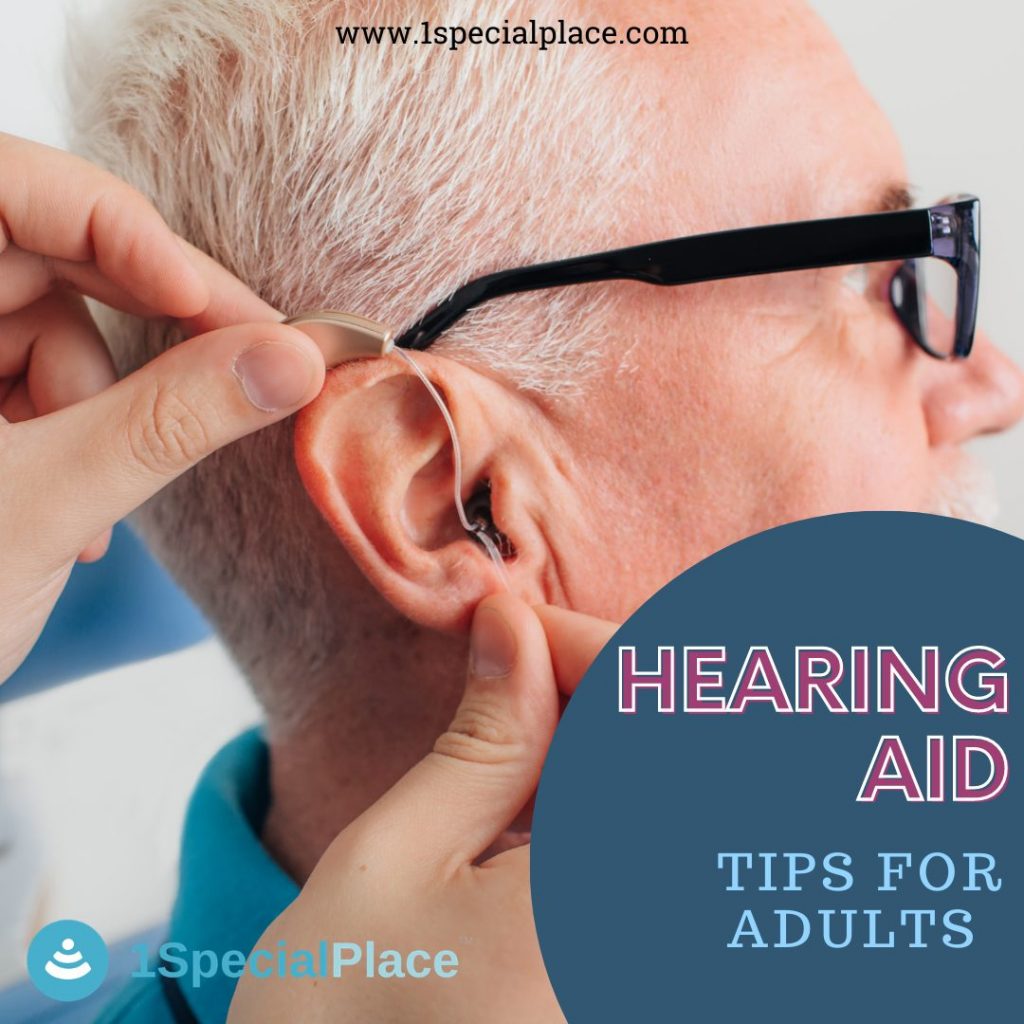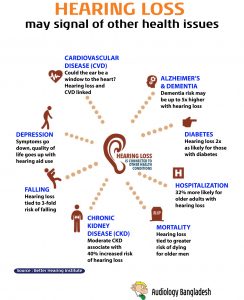Hearing Aid Tips For Adults
Hearing Aid Tips For Adults

Hearing Aid Tips For Adults, Hearing loss is the most common issue among adults and children these days. On an average, 8% of adults experience hearing loss every year in India. For all of us, life’s pleasures depend on good hearing. Hearing loss occurs gradually with age and people hardly notice these changes until it is too late. Early signs of a hearing loss in adults are as follows:
- Unable to follow or understand conversations.
- Ringing in the ears.
- Unable to enjoy subtle sounds of birds chirping and children laughing.
- Group conversations become tiring to follow.
- Hearing over the telephone becomes difficult.

“If you are experiencing any of the above signs, please consult a qualified Audiologist at the earliest.”
- Do not wait and watch as you or your loved one is missing out on those precious moments of communication.
- Early identification and fitting of appropriate hearing aids can further stabilize the hearing loss from increasing in severity.
Hearing Aid Tips For Adults
Why should I be concerned about my hearing loss?

Early identification and treatment of hearing loss can prevent the risk of developing further health issues such as;
- Memory loss/ Dementia
- Depression/ Social Isolation
- Imbalance during movement
Hearing loss tips for children
What are hearing aids for adults?
Every hearing aid has an inbuilt microphone that picks up sounds, receiver that delivers sounds inside the ear, a battery compartment and a volume control. Advance technologies allow hearing aids to pair with smart phones, television and other electronic gadgets. The following lists some points about hearing aids for adults:
- Change directionality to make group conversations easy to follow.
- Hearing aids provide relief from ringing sensations in the ears.
- Compatibility to live stream audio/video from your TV/computer or radio.
- They are available in all skin tones and are water resistant.
- Hearing aids are available for all cosmetic choices.
Some information about Cochlear Implants
When should I start wearing hearing aids?
Once all the audiological tests are completed and hearing loss is diagnosed, intervention can be initiated immediately. After hearing aids are fitted, constant professional guidance by an Audiologist will be required to monitor hearing aid benefits and maintenance.
“Once hearing loss is detected, you may have to wear hearing aids life long.”
- Please keep in mind; hearing aids are your ears, without which you may not be able to hear!
Which hearing aid will benefit?
A qualified Audiologist will decide which hearing aid will best suit your needs based on the following aspects;
- Type and degree of hearing loss
- Hearing needs in everyday life
- Durability of the hearing aids
- Compatibility with other devices
Hearing Aid Tips For Adults
For adults with hearing loss in both ears, an Audiologist will always recommend a bilateral hearing aid (hearing aid fitting in both ears). Bilateral hearing aids are the best choice as it provides maximum hearing benefit. Listening from both ears will help you to communicate better for a more productive social life.
An audiologist may also recommend any of the following types of hearing aids depending on the above stated conditions:
- Behind-the-ear (BTE) hearing aids
- Receiver in the canal (RIC) hearing aids
- In the Canal (ITC) hearing aids
- Completely in the Canal (CIC) hearing aids
“Always choose digital hearing aids as they are the best choice for a person with hearing loss.”
- Digital hearing aids are the newest in technology and can be programmed to suit everyone’s individual hearing needs.
- They have advanced technology which enables them to connect to any external device such a television, tablet or a phone. By this, you or your loved one will never miss out on listening to your favorite song or television show.
First hearing aid fitting session:
Once the hearing aids are selected, you may fix an appointment with your audiologist for the fitting session. This appointment may last up to 2 hours, be prepared in advance. During the session, your audiologist may do the following:
- Un-box the hearing aids and will explain the functioning and use of the device.
- Provide you with a user manual, maintenance tips and simple troubleshooting steps.
- Connecting the hearing aids to external devices such as a Bluetooth microphone etc.
- Program the hearing aids as per the audiogram.
- Fitting the hearing aids in the ear.
- Testing your auditory responses after switching on the device.
Your audiologist may recommend follow up appointments to re-program and monitor the hearing aid performance.
What are ear molds?
Ear molds are silicon based ear impressions that are taken for persons wearing a hearing aid. These molds are custom made by taking an ear impression. Ear molds help to deliver sounds into the ear without interruption and also fit snugly inside the ear.
Hearing Aid Tips For Adults
Are my hearing aids a stigma?
Most often people avoid wearing hearing aids because they feel it makes them appear socially awkward. It is important to remember the following points:
- Hearing aids benefit an individual by improving the quality of life and also facilitating healthy brain functioning.
- It prevents depression and promotes a healthy mental status.
- Hearing aids help communicate better and provide a fruitful social life.
- Modern hearing aids are very discreet and are almost unnoticeable.
“For your hearing needs always consult a qualified and registered Audiologist/ Hearing health professional only.”
If you have any further queries regarding hearing loss, kindly contact us at info@1specialplace.com.
For more ideas check out our other related blogs
View this post on Instagram
- Tele-Speech Remediation of Stuttering: A Case Study - April 22, 2023
- Voice Changes During Puberty in Teenagers - April 11, 2023
- Vital Stim Therapy for Swallowing Difficulty - April 4, 2023





Leave a Comment
(0 Comments)